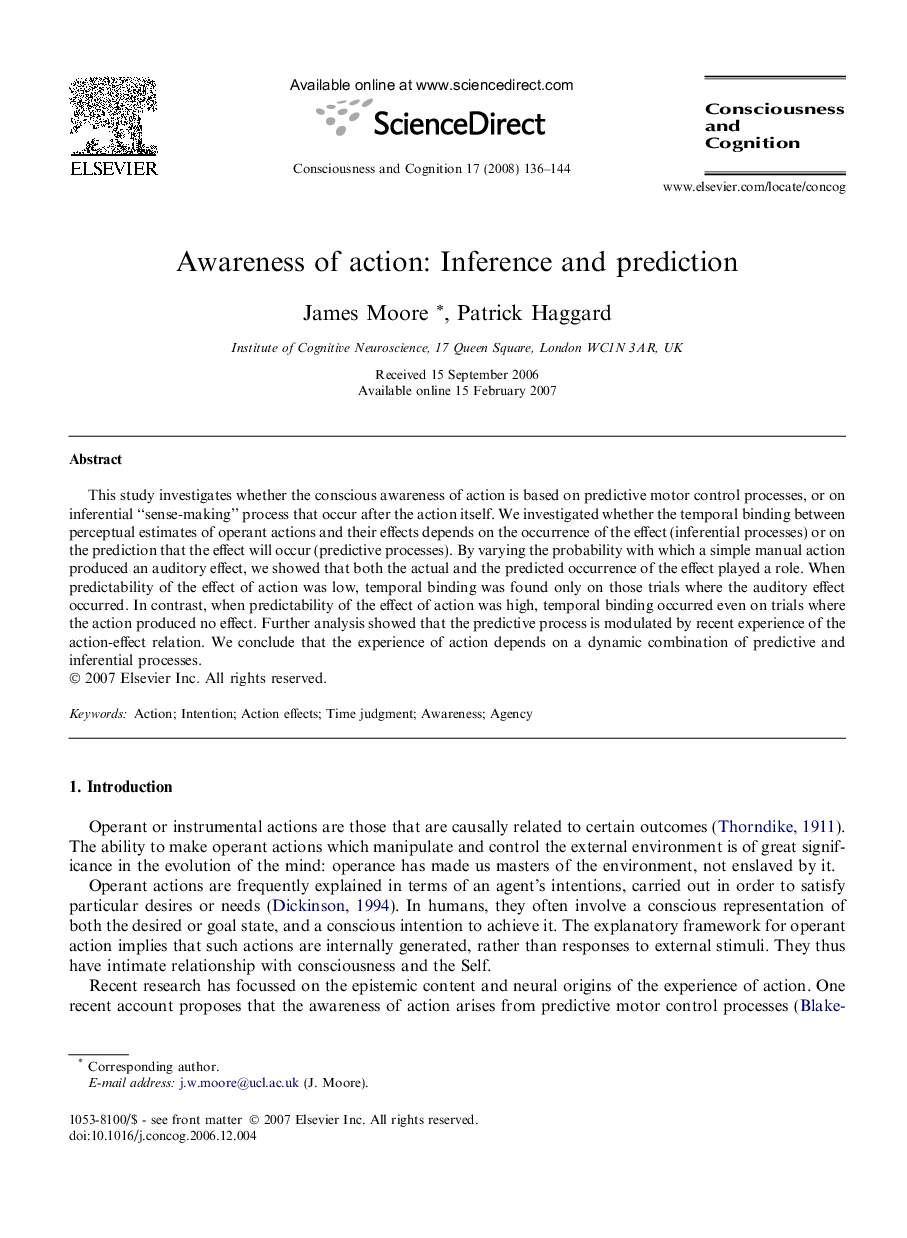| Article ID | Journal | Published Year | Pages | File Type |
|---|---|---|---|---|
| 928090 | Consciousness and Cognition | 2008 | 9 Pages |
This study investigates whether the conscious awareness of action is based on predictive motor control processes, or on inferential “sense-making” process that occur after the action itself. We investigated whether the temporal binding between perceptual estimates of operant actions and their effects depends on the occurrence of the effect (inferential processes) or on the prediction that the effect will occur (predictive processes). By varying the probability with which a simple manual action produced an auditory effect, we showed that both the actual and the predicted occurrence of the effect played a role. When predictability of the effect of action was low, temporal binding was found only on those trials where the auditory effect occurred. In contrast, when predictability of the effect of action was high, temporal binding occurred even on trials where the action produced no effect. Further analysis showed that the predictive process is modulated by recent experience of the action-effect relation. We conclude that the experience of action depends on a dynamic combination of predictive and inferential processes.
